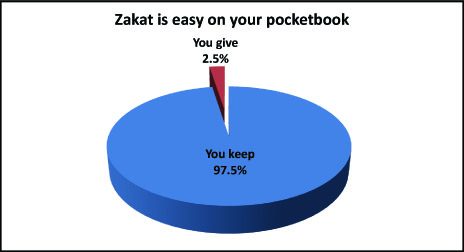It's a week into Ramadan and I've started to look for ways to cleanse my pocketbook. I'm not going on any shopping sprees during the Islamic month of fasting -- but by the month's end I will have spent a lot more than I normally do.
At one point every year, Muslims are obliged to purify their wealth by calculating 2.5 percent of their assets -- including money in bank accounts, shares, investments, pensions, gold, etc. -- and giving it to those less fortunate.
This is known as zakat, often loosely translated from Arabic as "charity," which should go toward helping orphans and the poor, as well as assisting people in debt, suffering from illness or facing numerous other financial struggles. Zakat, one of the pillars of being Muslim, represents the minimum amount of charity that each individual is obliged to give as a virtuous human being who considers the welfare of others. In this sense, everyone is in a position to pay forward a standard amount of their wealth and everyone is credited for doing so whether affluent or not.
When reading the Quran, the significance of zakat appears to be equal to prayer as an expression of faith. The two are often mentioned simultaneously in the symmetrical rhythm of the Holy Book's verses.
In the past, if I offered a couple hundred dollars each year to charities I felt I was doing enough as a young, middle-class professional, with a number of financial commitments of my own. I did not follow any formula, and when I started to properly calculate zakat, I realised that I tended to give much less than I should.
The 2.5% minimum is a small enough sum not to place a major dent in your savings, but large enough to make a difference. For every $10,000 of your assets, for instance, you should filter out $250 each year to purify this wealth and give it to those in need. So, for every $50,000 you have in savings, the zakat you owe is $1,250. The more wealth you acquire, the greater your responsibility becomes. For someone with $100 million, zakat is at least $2.5 million a year.

To understand the concept of zakat properly, you first must abandon the idea that the money in your bank account belongs to you. All of our money and possessions are temporary and in a sense function as tools of our worldly existence. Each of these tools belongs to God and He has entrusted us with these resources in order to examine how we will distribute, divide and share them.
Once I embraced this concept, I understood why paying zakat is so crucial. It is God's way of ensuring the re-distribution of the wealth He has placed in our possession. It has the ability to balance disparities between people and possessions -- as every single person has equal access to God in all moments, there should be no barrier preventing individual assets that belong to God from flowing between people.
Disparities in wealth distribution occur when too many of us take full ownership of our assets, sometimes taking on unsustainable debts in order to gratify our desires, which can skew the balance out of favour for those less fortunate.
Other than zakat, which is obligatory, people can also offer voluntary alms known as sadaqah. Virtually every month of the past year I've been motivated to give sadaqah to help families struggling in Egypt, Yemen and Libya due to political instability, people devastated by a tsunami in Japan or the heart-breaking famine in Somalia. Embracing Islam has turned on my sensors and me made more aware of my duties toward my community.
Being charitable has also shown me that the proverb "the more you give the more you get" is absolutely true. In the past year, I have given far more charity toward various causes than I did at any point in my life, yet, it has not reduced my wealth in the least. When I calculated my zakat, I was surprised to discover the amount I owe has nearly doubled compared with last year.
Giving generously and with the right intention in no way diminishes your wealth. Your money has greater baraka in it. The Arabic word meaning "blessing," baraka implies that your money goes further; you sense that you waste less and save more. Even though the act of giving seems like a loss of something, the profits somehow find a way back to generous hands.
The parable of those who spend
of their substance in the way of Allah
is that of a grain of corn:
It grows seven ears, and each ear has a hundred grains.
Allah gives manifold increase to whom He pleases;
And Allah cares for all and He knows all things.
(Quran 2:261)
On several occasions, I have read that when we are handing someone charity, it first passes through the Hand of God before it reaches the recipient's hand. I always imagine that when I give, it helps me do it with greater humility. Holding wealth truly is an immense blessing that comes with great responsibility and untold reward when we pass it along.
"By no means shall you attain righteousness, unless you give of that which you love."
(Quran 3:92)
